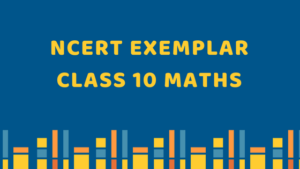Academic Paper Topics and How to Choose Them

One of the common and inevitable stages of academic writing is the selection of a topic. Although some people claim it’s an easy task, most of them change their minds after they try. It’s not quite easy to select a good topic, and many students fail exactly due to the wrong topic. Besides, bloggers or novelists also experience difficulties with this important stage. It’s hard to attract readers if your story doesn’t sound catchy and promising.
All the academic paper topics are supposed to be interesting for the readers. They should focus on an important question or problem. Students can choose a problem, which has a few or no proper solutions. Thus, they are obliged to find the required answer. Another way is to discuss something important like true love or friendship and explain it. If you choose the wrong theme, your project is doomed to fail. Therefore, take this pre-writing stage seriously and responsibly.
Preliminary Steps
Although the selection of a topic is referred to as a preliminary measure in paper writing, it also consists of preliminary steps. First of all, you ought to define the purpose of your writing. If you’re a student, it’s not difficult to get it. Your teacher or professor assigns a concrete assignment, which has a clear purpose. However, writers and bloggers have to try harder. They should choose a clear direction their stories would go and develop.
Bloggers may highlight politics, sports, business, medicine, and so on. They ought to be sure their content is interesting to read and that they really can write useful stories. Writers have even a larger number of options. Amongst such are detective, romance, fantasy, sci-fi, thriller, horror, and so on.
Secondly, consider your audience. You will write either for children, teenagers or adults. Some genres suit different ages of the audience. You have to take into account the possible wishes and preferences of your potential readers. Your texts are written exactly for them.
Choosing Your Topic
After you’re through with the preliminary stage, begin to brainstorm your future project. Remember that it must be something really interesting and important. Get a general idea, and try to decide which way should it go. Students, writers, and bloggers may use the same approach. Just take the main direction and write down all the concepts that occur to your mind when you look at that concept.
Take notes and evaluate them. Bring your ideas together and decide what peculiarity to study. For example, you want to write something about healthy nutrition. The direction is rather broad, and one will definitely find multiple themes to cover. You have to narrow your choice on something specific. Otherwise, you’ll have no time and space to study the issue properly.
Focus on the way fruits and vegetables nourish our body or write about how healthy food improves academic performance, etc. Never forget about your readers. Put yourself into their shoes and ask yourself – Would I really like to read about it?
Make sure you’ll be able to handle the case. Answer some control questions.
- What do I know about the chosen issue?
- Is it relevant?
- How should I disclose it?
- Can I manage it properly?
The next step is to research your topic. Perhaps the idea is really brilliant, but you lack information. In such a case, you have two ways. Firstly, reevaluate the chosen topic and rewrite it in other words. Secondly, seek another concept. You must be totally sure you have enough information to prove your theory and explain it to your readers.
The information sources you want to use in your project must be officially approved. Obligatorily verify every website, book, guide, or manual you find. Review its references and proofs. Afterward, gather trustworthy facts and sort them out. It’s quite possible that you’ll find more than required. Under such conditions, choose the most suitable facts, which fully support the main question of the project.
You should also frame your work. To be sure you’ve chosen the best variant, create a “working” outline and try to write one draft. Review it and give an objective evaluation. Perhaps it must be improved. Make the necessary adjustments to define the right topic.






